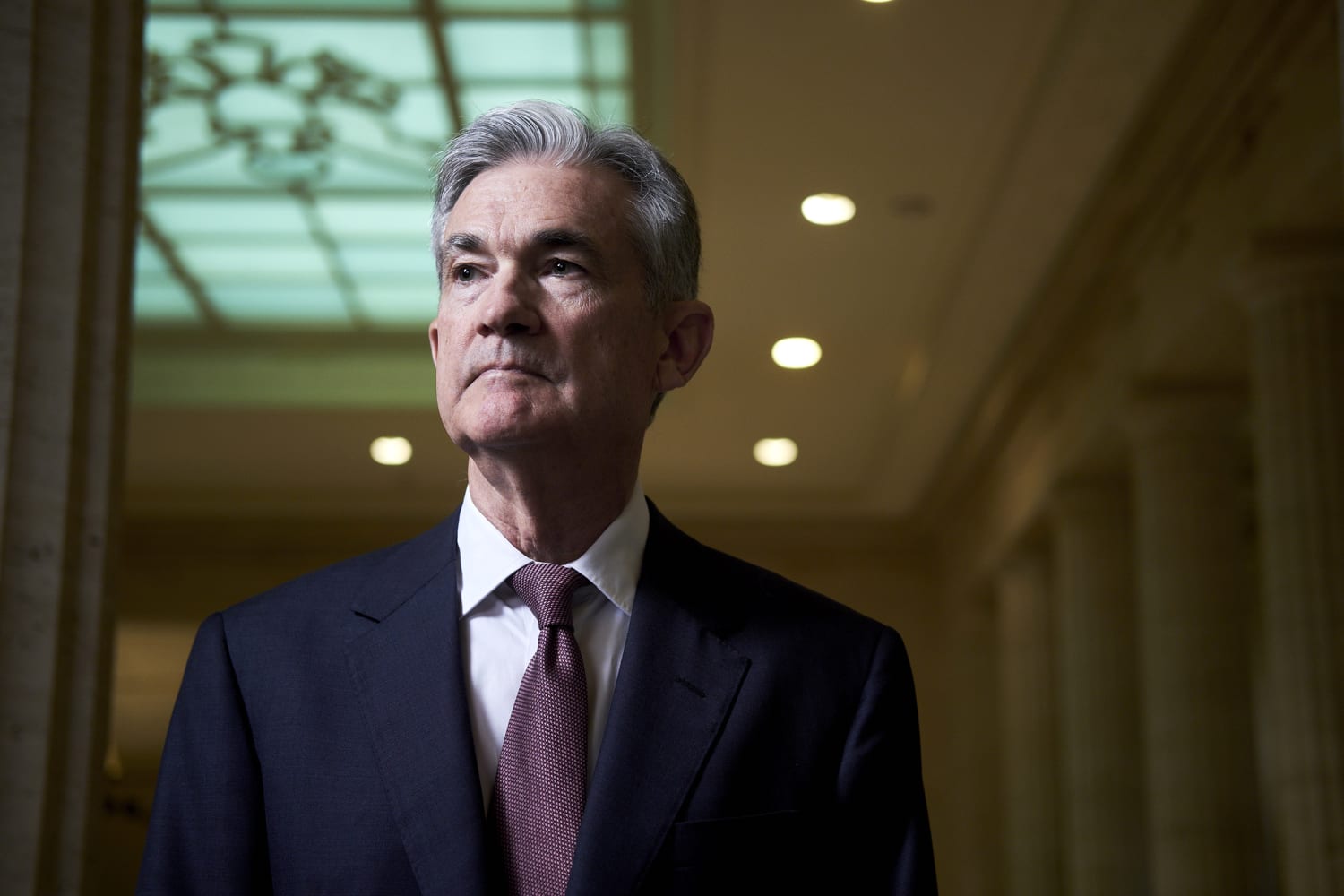The Federal Reserve is expected to lift its core interest rate by as much as 0.5 percent on Wednesday — its second hike in two months as the central bank works to fight inflation levels that have reached 40-year highs.
The widely expected move comes as the Fed seeks to cool off a pandemic recovery that has produced stellar job growth, but that has come against a backdrop of soaring prices across a range of goods and services, from gas to real estate. Labor, too, has gotten more expensive, fueling shortages and putting pressure on the Fed to slow companies’ expansion plans.
Thanks to prior comments by Fed Chairman Jerome Powell and other Fed officials in the run-up to Wednesday’s announcement, higher rates have already begun to show up in everyday borrowing transactions for products including homes and autos, according to Gus Faucher, senior vice president and chief economist of the PNC Financial Services Group.
“Where we’re more likely to see them [higher rates] show up now in is short-term borrowing costs,” Faucher said. “So one-year adjustable-rate mortgages, CD [certificate of deposit] rates may move up a little bit.”
While surging prices have historically come amid sputtering economic growth, many economists see the U.S.’s current financial picture as one that has been able to largely absorb recent leaps in the cost of goods.
Still, there remains some concern that the Fed has fallen behind when it comes to fighting inflation, and that it could end up having to raise rates so aggressively that it ends up tipping the economy into a recession. As economists at Bank of America wrote in a note to investors Monday, markets believe the Fed may have to set the federal funds rate beyond 3 percent to cool down inflation by making it more expensive to borrow. The current core or federal funds rate is now 0.33 percent.
Some economists were encouraged by data Monday that showed a slowdown in U.S. manufacturing activity as one reason why the Fed may not have to be as aggressive in raising rates as some have feared in recent months. Ian Shepherdson, chief economist at Pantheon Macroeconomics, is among those who believe inflation likely peaked in March, meaning the Fed will be able to slow its pace of interest rate hikes.
In a note to clients Monday, Shepherdson also cited “the rollover in housing demand, the impending steep drop in inflation, and the broad tightening of financial conditions” as arguments against “endless” rate hikes. “None of this will prevent a 50 [basis point] hike [Wednesday], or likely in June, but we are on the alert for markets to start scaling back their expectations for mid-summer onwards.”
But PNC’s Faucher said he believes a recession could still come in the next 24 months or so. He puts the odds that the economy goes into reverse at about 1 in 3.
“The Fed may decide we need to experience a mild recession to bring down wage-inflationary pressures,” Faucher said. “But the good news is starting from a very good place in the labor market.”
As a result, Faucher said, job losses are more likely to be concentrated in areas like housing and other durable goods that are interest-rate sensitive, as opposed to services consumption.
Still, he said, the next few years are likely to be turbulent.
“Right now the economy looks good,” Faucher said. “We’ve got good job growth, good consumer spending growth, so we are not in imminent danger of a recession — but the risk is elevated, and even if we don’t get a recession, things are going to be bumpy the next couple of years.”
Source: | This article originally belongs to Nbcnews.com











